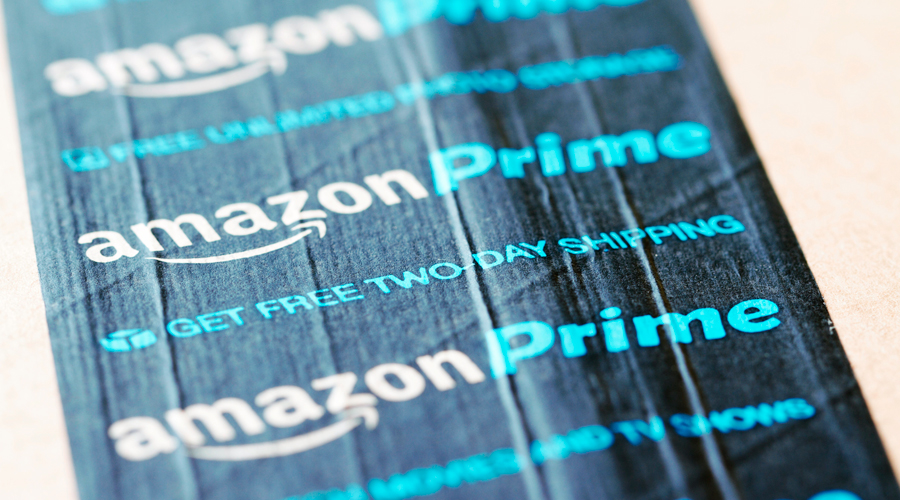Groups representing retailers hailed the U.S. Supreme Court’s ruling that out-of-state Internet sellers must collect sales taxes in every state that has sales taxes.
Brick-and-mortar retailers have long charged they’ve been at a competitive disadvantage against Internet sellers who do not always collect sales tax.
The ruling appeared to be welcomed heartily by retailers with physical stores in the active lifestyle space. More so than most other retail channels, athletic and outdoor stores have been victims of showrooming due to their high levels of customer service. A shopper tries on or learns about a product in store from a knowledgeable associate only to find it at a lower price online. Avoiding sales taxes – along with not bearing the costs of a physical store and sometimes through MAP violations, online sellers are seen having more leverage to offer lower prices.
Tales of shoppers using their mobile phone to find a lower price right in front a salesperson that just helped fit their shoes are not uncommon.
“The Supreme Court’s ruling is a huge win for the future of specialty outdoor retailers and will help ensure that all retailers compete on a level playing field,” said Amy Roberts, executive director of Outdoor Industry Association (OIA), in a statement. “We are proud to have been a part of the effort that resulted in yesterday’s decision.”
“This decision benefits brick-and-mortar retailers, who have been collecting sales taxes,” added Matt Carlson, president and CEO of the National Sporting Goods Association (NSGA), “It removes the unfair price advantage that many remote Internet sellers have, by not collecting the state sales taxes that are due.”
Terry Schalow, executive director, Running Industry Association (RIA), told SGB, “The RIA is thrilled that the US Supreme Court has recognized the disparity in tax fairness between on-line retailers and brick and mortar retail, and has acted to make a common sense correction. While there is more work to be done to achieve a level playing field, the decision comes at at time when consumers are increasingly recognizing the value of shopping locally, and we’re confident this move will help to reinforce that trend. ”
The case reached the U.S. Supreme Court after the South Dakota Supreme Court ruled last year that a 2016 law requiring out-of-state internet retailers to collect sales tax in that state violated a 1992 U.S. Supreme Court decision that said retailers are not required to collect sales tax in states where they do not have a physical presence. The 2016 law required online merchants with more than $100,000 in annual sales to South Dakota residents or more than 200 transactions to collect the state’s sales tax.
The state appealed the decision, and on Thursday the Court with a 5-4 decision reversed its 1992 decision.
In March, OIA, NSGA, RIA, National Ski and Snowboard Retailers Association (NSSRA), Running Industry Association (RIA) and several other retail organizations outside the athletics space submitted an amicus brief to the U.S. Supreme Court in support of South Dakota’s effort to collect sales tax from out-of-state e-tailers.
The ruling was also a win for large retailers, who long argued the physical presence rule was unfair. Large retailers, including Apple, Macy’s, Target and Walmart, which have brick-and-mortar stores nationwide, already generally collect sales tax from their customers who buy online. That’s because they typically have a physical store in whatever state the purchase is being shipped to.
“Retailers have been waiting for this day for more than two decades. The retail industry is changing, and the Supreme Court has acted correctly in recognizing that it’s time for outdated sales tax policies to change as well,” said Matthew Shay, president and CEO of the National Retail Federation, in a statement.
Deborah White, general counsel for the Retail Industry Leaders Association and president of the Retail Litigation Center, said, “Today’s decision culminates years of tireless work by the retail community to reverse a pre-Internet era rule that distorts free markets and puts local brick and mortar stores at a competitive disadvantage with their online-only counterparts.”
The ruling doesn’t require but now allows states to impose sales taxes on companies that operate entirely online, but states are widely expected to pursue sales tax on out-of-state online purchases, with more legal fights likely. Forty-five of the 50 states as well as Washington, D.C. have sales taxes.
More than 40 states had asked the high court to overrule two, decades-old Supreme Court decisions that they said cost them billions of dollars in lost revenue annually. Customers were generally responsible for paying the sales tax on items bought online to the state themselves if they weren’t charged it, but most didn’t realize they owed it and few paid.
Delivering the opinion of the court, Justice Anthony Kennedy said the physical presence rule in that previous case, Quill Corp. v. North Dakota, is unsound and incorrect.
“Between targeted advertising and instant access to most consumers via any Internet-enabled device, ‘a business may be present in a state in a meaningful way without’ that presence ‘being physical in the traditional sense of the term,’” he said.
”The internet’s prevalence and power have changed the dynamics of the national economy,” added Kennedy. “This expansion has also increased the revenue shortfall faced by states seeking to collect their sales and use taxes.”
Kennedy
Kennedy wrote for the majority together with Justices Clarence Thomas, Ruth Bader Ginsburg, Samuel Alito and Neil Gorsuch.
Chief Justice John Roberts dissented, saying the decision should be left to Congress, and was joined by Justices Stephen Breyer, Sonia Sotomayor and Elena Kagan.
“The burden will fall disproportionately on small businesses,” Roberts said. “The court’s decision today will surely have the effect of dampening opportunities for commerce in a broad range of new markets.”
Internet retailers have argued that allowing every state to collect taxes on online sales would cause confusion and unreasonable burdens in today’s online-heavy retail economy. The court’s ruling shows it has sided with those that argue that manageable technological solutions are available to address this concern.
“Big Supreme Court win on internet sales tax – about time!” President Donald Trump, who has bashed online retail powerhouse Amazon.com and whose administration backed South Dakota, said on Twitter. “Big victory for fairness and for our country. Great victory for consumers and retailers.”
“This is a great day for South Dakota. We have long fought the battle to defend Main Street businesses and now with today’s ruling, all businesses will compete on a level playing field,” South Dakota Republican Governor Dennis Daugaard said.
Amazon, which has been a favorite target of President Trump largely because its CEO privately owns The Washington Post, collects sales taxes on direct purchases from its site due to the rapid expansion of warehouses across states in recent year. But Amazon does not typically collect taxes for merchandise sold on its platform by third-party vendors, representing about half of total sales.
Research by Slice Intelligence in 2016 found that Amazon’s direct sales to consumers and its market share were not adversely affected in Colorado and South Carolina after it began collecting the sales tax in those states.
The South Dakota law and others like it could yet face legal challenges on other grounds. Congress could also intervene to set a nationwide standard.
“You will certainly see, absent congressional action, significant litigation, as states try to push the envelope on this,” Mike Dabbs, senior director of government relations at eBay, which had backed Wayfair, told Reuters.
E-commerce industry group NetChoice promised a “summer of chaos” as small internet businesses struggle to comply with the conflicting tax rules of more than 12,000 local tax jurisdictions across 46 states.
“Small web businesses will be hardest hit,” said Chris Cox, NetChoice outside counsel in a statement, “particularly those with only a single location, because they can’t afford the overhead to comply with thousands of different tax rules across the country. Consumers will quickly feel the negative effects as those businesses dry up or are forced into the arms of Internet giants.”
Photo courtesy Amazon
















